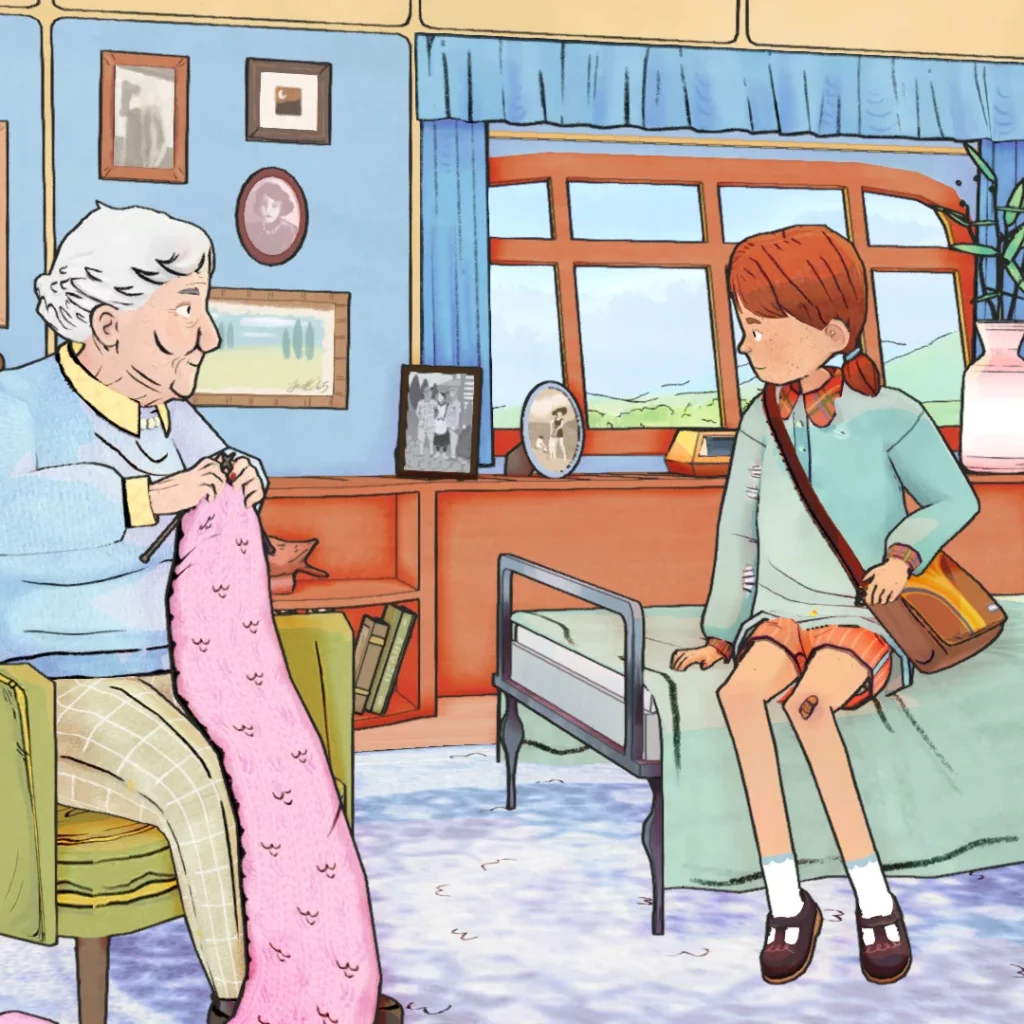Review: Wayward Strand
Wayward Strand, the debut game from Australian developer ghost pattern[1] , has a wonderfully unique premise. Protagonist Casey Beaumaris is visiting her mum’s work, a nursing home and hospital set aboard a stationary floating airship, for three days during school break. Casey, who considers herself an intrepid journalist, sets about investigating the ship so that she can write an article for her school’s paper while also trying to help her mother during a stressful few days.
This is usually the point in the synopsis where a grander narrative would be hinted at: a conspiracy, a cover-up, a big reveal. Wayward Strand‘s interests lie elsewhere. The “mysteries” are gossip between cliquey residents aboard the ship. The reveals are small character moments, and there are no shocking twists. This is a game of small moments and realistic conversations, one that forgoes the treacly, preachy messaging about the elderly you might anticipate: its older characters are people, not props. Wayward Strand presents the player with a lovely, beautifully realised little slice of a world and simply asks them to live within it for a moment.

Casey can explore the ship and talk to its residents, finding out more about their lives and the ship itself. There’s no firm objective, so it’s up to you how you want to spend your three days (which equate to about five hours of real time). You can eavesdrop on conversations between residents or staff, question anyone you encounter about their lives, or even just sit and read your book for a spell – sometimes there’s value in just sitting still and taking a beat. But whatever you choose to do, life on the ship will continue, even if you’re not there to witness it. Choose to stop in on Ida, the lovely lady voiced by Neighbours‘ Anne Charleston, and you might miss a commotion in the dining room happening at the same time, to give just one example of many.
Across the three days you can get to know the residents better, become privy to certain stories, and fill out a journal with observations. You’ll also become aware of how much you’re missing out on because you can’t be everywhere at once. You can choose to focus on specific characters or try to get to know everyone; some characters will make it harder than others, and some stories might not resolve in satisfying ways. Wayward Strand is an uncommonly honest game, which has the respect to treat its older cast as complex individuals with deep personalities and flaws, some of whom are in great pain or facing significant challenges. The gameplay systems are not particularly complicated, but its narrative absolutely is – the ship feels alive, and there’s a rare sense of the game’s world not revolving around the player’s actions.
Growing up, I had several family members who worked in aged care; when I was younger than Casey, I too spent odd days wandering around a nursing home, occasionally being invited to interact with the residents. With this life experience in mind, I was impressed at how authentic Wayward Strand felt, from the extremely stressed staff who try not to let the strain show, to the variety of personality types and complex interpersonal relationships between the residents, to the general sense of chaos juxtaposed with long, quiet moments of sitting and making conversation. The cast of Wayward Strand is excellent: the biggest name attached is Michael Caton as Neil, a blustering author with a deep love for gossip, but everyone is fantastic. Casey is played by newcomer Nancy Curtis, who hits the exact balance of inquisitive charm you want from a character like this, imbuing her with a sense of believability. Digging into the other characters on the ship through Casey’s eyes is a delight.
Wayward Strand is, very specifically, a game about adjusting to three days that aren’t quite what you’re used to. This game made me think about what three days can mean: for Casey, it’s just enough time to meet everybody and start to adjust to the schedule of the ship. For the residents, it’s a three-day period where life carries on much as usual but with an enthusiastic young visitor on board, whereas the staff onboard have a different experience entirely. Wayward Strand is an inherently philosophical game without ever lecturing the player on a particular viewpoint.
Wayward Strand has been compared to the classic adventure game The Last Express, which is similarly set in semi-real time (albeit on a train instead of an airship), but truthfully there’s really nothing else quite like it. It’s extremely Australian, beautifully introspective, and tapping into a vibe I’ve never experienced in any other game. It’s both relaxed and urgent, deep and straightforward, soothing and, occasionally, alarming. It’s a game of emotional honesty and integrity, a game of immense dignity and grace, and one that is likely to stick with me well into my own twilight years.
Wayward Strand is available now on PC, Switch, PS4, PS5, Xbox One, and Xbox Series S/X. A PC copy was provided for review.
James O’Connor has been reviewing and writing about games since 2008.













